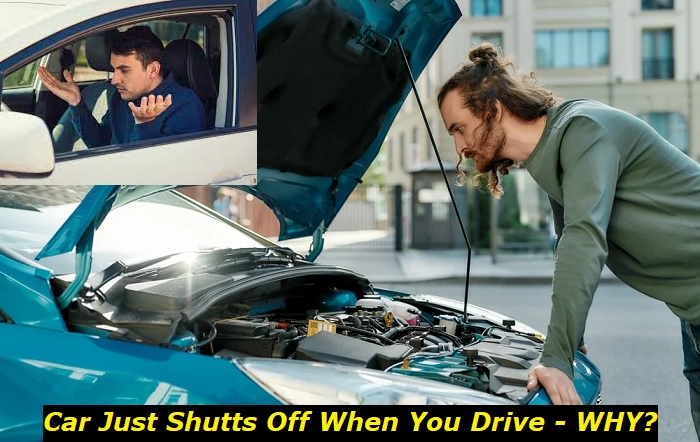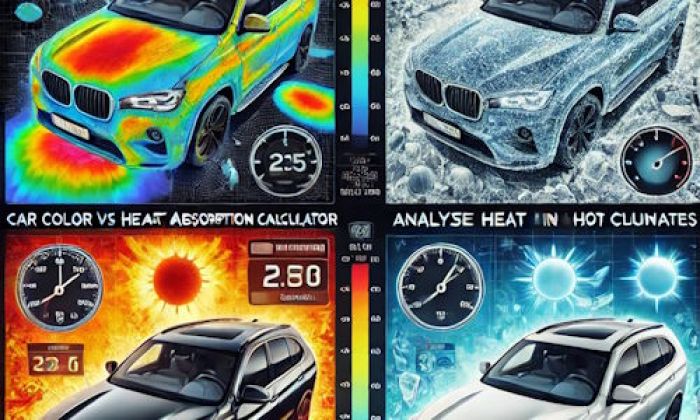So, you were driving along, as you normally do, and all of a sudden, your engine decides to turn off. Not only does it shut off while driving, but also without any warning, such as the Check Engine light in the instrument cluster. This has to be one of the most unpleasant situations you could end up in while driving, since not only is it very frustrating, but it could also be dangerous.
Engine stalling highlights
- Level of importance:High
- Commonreasons:Compression, electrical issues, fuel or air supply problems
- DIY inspection:Possible but complicated
- DIY repair:Impossible
- Price for repair:$250 - $1,500
- Can you drive?Very carefully
- Ways to fix:It's usually professional repaironlyunless the problem is with the air filter or some other part that's easy to replace.

What could cause the engine to shut off while driving?
Even though it might seem a little strange at first to not have any warning light lit in the instrument cluster if something like this were to happen, it is, unfortunately, something that could happen to any car, regardless of make and model.
Here are some of the things that might cause issues:
- Blown fuse
The fuse panel is one of the first things you should check if you encounter this issue, since many times this simple operation could save you a lot of time and money. For example, if the fuse for the fuel pump has blown, the engine won't be getting the fuel it needs anymore.
- Bad fuel pump relay
Just like in the case of the fuses, checking the relay could yield results, since sometimes they are the actual culprit and not the fuel pump itself.
- Bad ground
Have you just hit a bigger pothole? One of the grounds in the engine bay might have come loose. There are a few of them throughout the vehicle, so make sure you check all of the ones you can see. They might have already been a bit loose for quite some time and your hitting a bigger bump in the road might have taken its toll on one of them.
- Faulty ignition switch
The ignition switch is a component that rests behind the ignition lock and if it were to fail, it might cause the ECU to think that you turned the key in the ignition and turned off the engine, even though you were driving.
- Bad fuel level indicator
You thought you had at least half of the tank left? You might want to check that again since fuel level indicator failure is not something uncommon or unheard of. Even if it might sound a little bit too obvious, you might have just run out of fuel.
- Clogged fuel filter
This is an item that is often overlooked by most owners so it would be a good idea to think about when was the last time you replaced the one in your car. You can't remember? Well, in this situation you might want to do so. The fuel that you're filling up your car with is actually a lot dirtier than you might think and many times filters get clogged with all the debris in it.
- Clogged air filter
Just like us people, cars need fresh air to breathe properly. Fortunately, unlike us, they have filters fitted to them that prevent any unwanted debris from getting sucked into the engine.
However, when these filters haven't been replaced for quite some time and especially if the vehicle has been driven in a less clean environment, they can get clogged and that means that there won't be enough air reaching into your engine's combustion chamber, and by now, we think you already know what this means.
- Bad fuel pump
Unfortunately, fuel pumps are one of those components that don't usually give any signs before their failure, so when they fail, they fail. If they don't work, there won't be any fuel getting into the engine. One of the ways you could tell that your problem is fuel system related is by trying to use a starter fluid. If the engine starts just fine, this might be your problem.
- Faulty alternator
Alternators are used to charge the vehicle's battery and when they fail, the engine will still run for a certain period, but just on the electricity that is stored in the battery. Once that electricity runs out, the vehicle will simply shut off. Usually, when there's no charge, you might get a warning light/message in the instrument cluster to tell you so.
- Bad idle control valve
When the IAC (idle control valve) is clogged or faulty, most of the issues will be present just when the engine is idling, so if the engine shuts off only when you're coming to a stop, you might want to check the IAC.
As mentioned above, many times the only thing wrong with this component is the fact that it's clogged and there isn't enough air passing through its channels to keep the engine idling.
- Faulty crankshaft position sensor
The crankshaft position sensor is one of the most important sensors fitted to any vehicle. As the name suggests, its purpose is to tell the ECU the exact position of the crankshaft at any given moment, for it to run properly.
When this sensor is faulty, the vehicle will usually not even start anymore. Many times, they start acting up because of excess heat, in which case the vehicle might start again after letting it rest for 10-15 minutes.
- Faulty ECU
An ECU that's failing could give you all sorts of issues, one of them being your engine suddenly turning off while you were driving. It's important to know that the ECU is basically the brain of the car and if it were to fail, the engine won't run anymore.
How to fix the problems?
Fixing this problem really depends on what's actually wrong with the vehicle. Quite obvious, right? However, this is worth mentioning since there isn't always one universal fix that suddenly repairs everything. Fortunately, some of these issues can be investigated by pretty much any amateur mechanic.
Checking and replacing the related fuses and relays is probably one of the easiest things you could attempt and they are also quite cheap fixes. Checking and tightening any loose grounds is also quite easy and can be done with the appropriate wrench.
Do you think you might have just run out of fuel? Simply pour about 1 gallon of fuel into the tank and if the engine starts right up, then you know where your problem is.
When it comes to checking if the air filter is clogged, you could simply open the airbox, if you have the appropriate tools, and then take the filter out and clean it as best as you can.
One simple way of checking if the fuel pump is not working as it should is by listening under the vehicle, where the fuel tank is located, or by listening to where the fuel cap is for a specific buzzing sound whenever the ignition is engaged. This is something that would be easier to try if there is another person with you that could turn the key into the ignition while you listen carefully.
If the crankshaft position sensor is your issue, then you will probably see it if you take a diagnostic. Even though there is no warning light in the instrument cluster, an error will have almost certainly been memorized in the ECU's memory.
Of course, any of your local shops will be more than happy to help you with any of these issues, and if you don't really know what you're looking for when troubleshooting a car, it would be best to leave this job to a specialist, since messing with certain things could do more harm than good.
How to avoid issues in the future?
Since most of the components that could cause issues aren't things drivers usually mess with, there isn't much that can be done to prevent the aforementioned problem from happening.
The only thing we recommend you do is to perform regular services and to have your vehicle checked by a mechanic from time to time since they might notice something that could become an issue in the future.
Should you drive like this?
Even if the vehicle's engine suddenly turned off and then it started right back again, we don't think that it would be a good idea to drive like this, since it can happen again any time and you definitely wouldn't this to happen while you're overtaking another car, for example.
Final thoughts
To summarize everything, the engine turning off while driving, especially without any warning, can be an unpleasant surprise to anyone and we think it's important that you understand there is no need to panic if this were to happen. Simply stop safely on the side of the road, since you will still have steering and enough braking power to do so.
About the authors
The CarAraC research team is composed of seasoned auto mechanics and automotive industry professionals, including individuals with advanced degrees and certifications in their field. Our team members boast prestigious credentials, reflecting their extensive knowledge and skills. These qualifications include: IMI: Institute of the Motor Industry, ASE-Certified Master Automobile Technicians; Coventry University, Graduate of MA in Automotive Journalism; Politecnico di Torino, Italy, MS Automotive Engineering; Ss. Cyril and Methodius University in Skopje, Mechanical University in Skopje; TOC Automotive College; DHA Suffa University, Department of Mechanical Engineering






Add comment